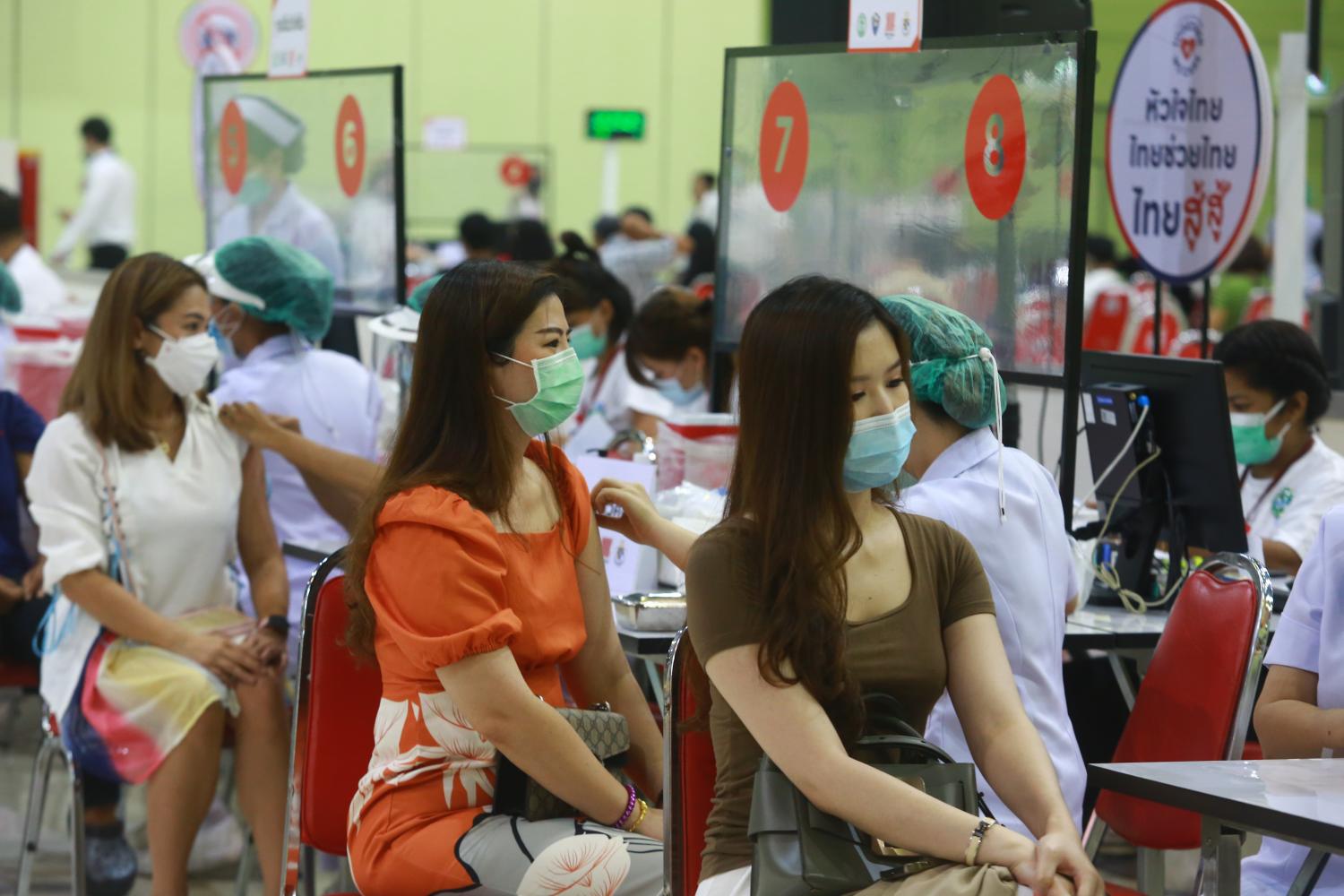
The explosive spread of Covid-19 in Bangkok's prisons came to light only a few days ago. It was the latest indication of what has gone wrong with the government's latest handlings of the pandemic.
Just recently prison authorities boasted that it had in place effective measures to control infections within its premises. The audacious claim was made following a complaint by jailed pro-democracy protesters about unusual, night-time attempts to take some of their friends away for Covid-19 tests.
It turned out that some of the jailed dissidents did get infected. But they were among almost 3,000 fellow inmates who caught the coronavirus.
The shocking news came only after Panusaya "Rung" Sithijirawattanakul, the only female dissident, told her friends and supporters shortly after she was freed on bail that she had Covid-19. Had she not been released and tested, would we have been informed of the serious situation in the prisons?
Following the revelation, the authorities, including the justice minister, tried to explain why the number of infections in their care was made public so late.
All that their attempts have accomplished, however, is to worsen the public's distrust and lack of faith in the authorities' handling of the latest round of infections.
Now they are in a frenzy to separate the healthy prisoners from the infected ones. How they are going to do that, given that most prisons are already overcrowded, is anybody's guess. Needless to say, there's little public faith in their ability to do so.
The current situation is really worrying for government agencies and health workers as new clusters of infections are discovered almost daily.
Unfortunately, the Gen Prayut Chan-o-cha as head of the government has been responding to the runaway infections has not inspired much confidence.
In a crisis such as this, official communication needs to be clear and easily understood, and authorities must be transparent in transmitting information to the public.
Thus far, however, that has not been the case. People have often been left puzzled and confused.
As the SARS-CoV2 virus progresses to infect more and more people, disrupting life and economic activities, the issue on most people's minds inevitably is vaccines and their distribution.
In this particular area, the consensus is probably that the government has failed. You need look no further than the fact that the big bosses of the private sector felt compelled eventually to make public statements after keeping mum for an entire year.
These are not a bunch of people who would make a public gesture that would be taken as a slight to the people in power. So, the fact they got antsy enough to step out of the shadows to offer their "cooperation" was a sure sign they could no longer sit tight and see the economy go down the drain.
As for the people, you would think, now that the government has launched its inoculation campaign that seems more definite than before, you would think they would be eagerly lining up to have the jabs.
But, no. So far, registration for the vaccine has fallen far short of expectations, and the government had to announce a walk-in campaign for anyone who wishes to have a shot. Since the announcement, people have been holding their breath to see how the campaign turns out.
With so many wrong moves to quell the pandemic, instead of admitting mistakes and trying to do better, Gen Prayut blamed the people for "not cooperating enough" with the authorities.
Critics of his vaccine programme receive even harsher reprimands and bizarre refutations. The most prominent one is Thanathorn Juangroongruangkit, who warned earlier in the year that the government was making a serious mistake by putting all its eggs in a single basket.
He urged the government to scour the world market to make deals with vaccine manufacturers to ensure an adequate supply and a diversity of vaccines.
And what did he get? He got slapped with a charge of lese majeste because he mentioned Siam Bioscience, the only manufacturer of AstraZeneca vaccine in Thailand. The company was founded by King Rama IX in 2009.
Most recently, a well-known musical artist and TV host was also charged with lese majeste for posting a Facebook status about the vaccine programme.
However, as public anxiety about vaccination reaches a crescendo, the prime minister has had to back down and even ordered his officials to acquire a huge volume of vaccines of various makes, which, incidentally, is what Mr Thanathorn had suggested.
Although it is now clear to most people, and perhaps even to the ex-general himself, that the Covid-19 situation in Thailand is being seriously mismanaged, it still does not occur to him to admit his responsibility.
Instead of consulting with his ministers to ensure better coordination and communication, he takes over all legal powers to make himself the de facto Covid-19 tsar.
What he's saying by way of these actions is that all the responsible ministers have failed in their duties. There's no other way to interpret this other than that it's a move of desperation in the face of rising public discontent.
This is not a good omen for the country. A desperate man under pressure is not likely to make well-thought-out decisions.
I'm reminded of a saying by an American president, Harry S Truman: "If you can't take the heat, get out of the kitchen."

